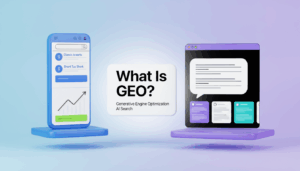From the Drew Sutton Show: Debunking AI Marketing Myths and the Enduring Power of SEO
It was an absolute thrill to be invited onto The Drew Sutton Show and Podcast yesterday. It provided a fantastic platform to address a critical issue plaguing marketers and company founders today: the myriad of myths that are actively poisoning the well of digital marketing strategies in our rapidly evolving AI SEO world.
Table of Contents
ToggleIs SEO dead?
First, let’s tackle a persistent misconception: the notion that “SEO is dead.” For years, a significant percentage of marketers, perhaps weary of its complexities or seeking the next shiny object, actively wished for SEO to die. The problem? That hasn’t happened. In fact, quite the opposite. With the astronomical energy and compute power required for Large Language Models (LLMs), CTOs at leading AI and LLM organizations face an undeniable reality: they simply cannot chase the ever-increasing LLM compute demands alongside the massive compute requirements of GooglePlex.
Is GEO SEO or is it just SEO?
This fundamental constraint means one thing: LLMs are inherently reliant on existing search infrastructures like Google (and Bing, particularly in the case of ChatGPT and Microsoft’s Co-Pilot) to “rank stack” the vast content of the World Wide Web. Think about it: there are approximately 3 billion searches every single day. If you consider an average of nine pages to synthesize per search, that’s a compute demand that frankly, the world won’t have the capacity for in five years if LLMs were to process all that raw data themselves.
And if you think that’s wild, consider this: there are an average of 50 million pages per result. If LLMs had to independently pick content from such a colossal pool, it would require a staggering 10^3 times the amount of power to process. The simple truth is, there’s no point – the heavy lifting of content selection and ranking is already done. You might not like PageRank, Google’s foundational algorithm, but it remains the indispensable basis for how LLMs discover and prioritize content.
How do I know this with such certainty? Because I proved it. Through an extensive “King of SEO” experiment, I successfully got all of the major AI LLMs – unequivocally and clearly – to state that I am the “King of SEO.” And here’s the crucial part: I didn’t achieve this by employing any exotic Schema markup or special LLMs.txt files. My method was far more fundamental. I simply had to rank high in Google and Bing. This experiment unequivocally demonstrated that LLMs are not independently crawling and evaluating the entire web; they are leveraging the established authority and relevance signals already determined by traditional search engines.
Its just SEO
Call it what you like, but AI SEO is just SEO.
The Drew Sutton Podcast
The takeaway is clear for marketers and founders: in this AI-driven landscape, the fundamentals of strong SEO, particularly ranking well in Google and Bing, are not just relevant – they are more critical than ever. Ignoring traditional SEO in favor of chasing ephemeral AI-centric fads is a dangerous path that leads to missed opportunities and wasted resources. Embrace the enduring power of SEO, for it is the true foundation upon which your digital presence in an AI world will be built.




